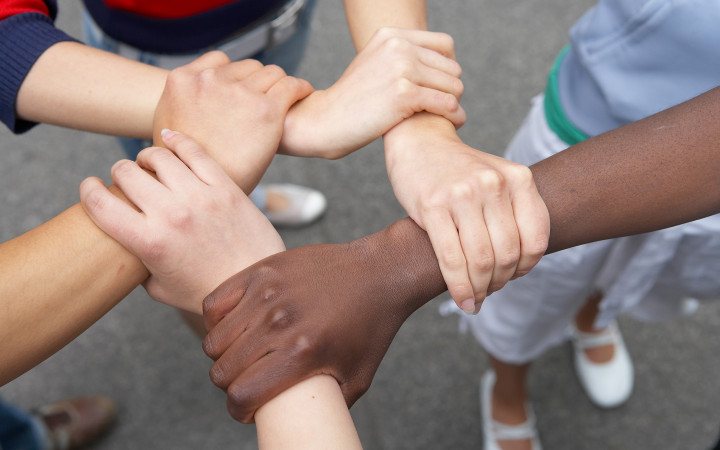Today’s Wonder of the Day was inspired by Ruby. Ruby Wonders, “How can YOU support LGBTQ+” Thanks for WONDERing with us, Ruby!
Today’s Wonder of the Day is about a word you’ve probably heard before: ally. What does it mean? Put simply, an ally is someone who helps. You may have heard “ally” used before to describe countries that help each other in times of war. That’s one time when allies can make a difference, but today we’re talking about another use of the word.
Allies aren’t always other nations—sometimes, they’re just one person! Being an ally can mean helping or advocating for other people. Individual allies are people who stand up for historically oppressed groups.
Do you know someone who identifies as LGBTQIA+? Maybe you have friends who are Black, Indigenous, or people of color (BIPOC). You might know others who moved to the country you live in from somewhere else. Perhaps your neighbors practice a religion that’s not common where you live. Or maybe you’re part of one of these groups yourself! Being an ally means helping groups like these achieve equality. It means standing up for them against bullies and those who would stop them from having equal rights.
What do allies do? They spend a lot of time listening. When a person from a historically oppressed group shares their experience, allies pay attention. For example, if an LGBTQIA+ individual shares a story about discrimination, allies listen and try to understand. They make sure their friend feels heard and supported.
Allies also spend a lot of time learning. They seek to learn about the history of discrimination. They also learn about current events. For example, an ally to BIPOC pays attention to how systems treat people of different colors unequally. They try to learn how to better support the people around them.
While learning, allies also look inward. They think about their own experiences and face the biases they may have formed. Allies also learn a lot about privilege. This includes special advantages based on race, gender, class, ability, or other parts of one’s identity. Allies learn what kind of privilege they may have and how they can use it to help others.
Finally, allies get into good trouble. They speak up and show up. Allies don’t stay quiet when they see others being bullied or treated unfairly. They encourage their elected officials to make the world more equal for all people. And they show up in support of historically oppressed groups when they can. You’ll see allies at LGBTQIA+ Pride events, marches for racial equality, and similar gatherings.
Of course, allies still have much work to do. In recent years, allies have helped push for legal protections for the rights of LGBTQIA+ individuals. They’ve helped them protect their rights in parts of life like family and healthcare.
Can allies make a difference? Many people think so. If you watched the clip of testimony in today’s video gallery, you met Elizabeth Holtzman. Growing up, Elizabeth was inspired to become an ally. She learned about her family history, which included stories of antisemitic attacks. Looking around her, Holtzman also witnessed instances of racial injustice.
As an adult, Holtzman became a lawyer and a U.S. Congressperson. In these roles, she was able to continue her work as an ally. She worked against racial injustices and even fought to bring Nazi war criminals to justice! As an individual ally, Holtzman certainly made a difference.
Have you ever spoken up for a friend or sibling who you felt was being bullied or treated unfairly? Do you know any trusted adults who call themselves allies? To learn more about what that means, talk to them. They’ll be able to share what the word means to them and how they act to support others.
Standards: CCRA.L.3, CCRA.L.6, CCRA.R.1, CCRA.R.2, CCRA.R.4, CCRA.R.10, CCRA.SL.1, CCRA.SL.2, CCRA.W.3, CCRA.W.7, CCRA.L.1, CCRA.L.2,




